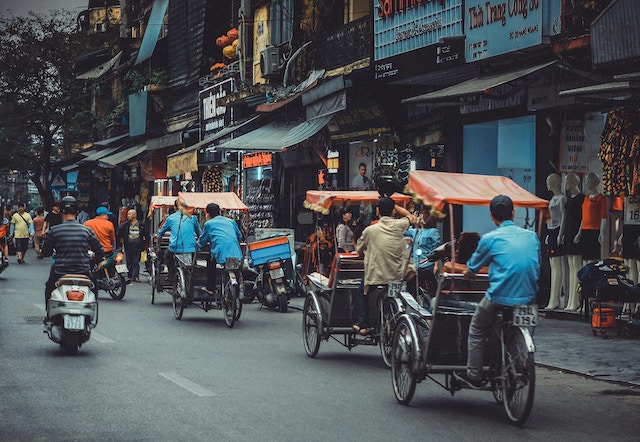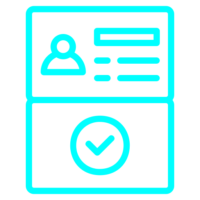To enter and exit Vietnam, the Vietnam Immigration Department requires visitors to provide several documents.
If you are planning a trip to Vietnam, it’s important to be aware of the entry and exit requirements in place. From obtaining the appropriate visa to undergoing the essential health screenings, you’ll need to have these prerequisites for a smooth and hassle-free travel experience, whether you’re landing in Ho Chi Minh City or Hanoi.
Read on for everything you need to know about Vietnam’s travel requirements.
- Vietnam Travel Requirements: Know Before You Go
- Vietnam Required Documents
- How Do I Obtain a Passport?
- How Do I Obtain a Vietnam Visa?
- How Do I Obtain the Entry and Exit Form?
- Health Requirements and Screenings
- Health and Safety
- Local Laws and Customs
- Money and Currency
- Preparing for Your Vietnam Trip
Vietnam Travel Requirements: Know Before You Go
Vietnam Required Documents
- Passport: Your passport must be valid for at least six months from the date of entry into Vietnam. Your passport should also have at least two blank pages for the entry and exit stamp.
- Visa: Unless you are from a country that is exempt from visa requirements, the Vietnamese government requires a visa to enter. American passport holders need a visa to enter Vietnam.
There are several types of Vietnamese visas available, including the tourist visa, business visa, and e-visa. You can obtain a valid visa by applying online through the Vietnamese government’s official website, or through a visa service provider like Entriva. - Entry and Exit Form: You will need to fill out an entry and exit form upon arrival in Vietnam. This form can be obtained on the plane or at the airport.
How Do I Obtain a Passport?
If you do not already have a passport, you can apply for one at your local passport office. The process typically takes four to six weeks, so make sure to apply well in advance of your trip. If you already have a passport, make sure to check its expiration date and renew it if necessary.
To get a United States passport, an American citizen needs to follow these steps:
- Fill out form DS-11: The DS-11 form is available online or can be obtained at a passport acceptance facility.
- Gather required documents: You will need to provide proof of citizenship (such as a birth certificate or naturalization certificate) and a government-issued ID (such as a driver’s license).
- Get a passport photo taken: Your photo must meet specific requirements, such as size, lighting, and positioning.
- Pay the application fee: The fee varies depending on the type of passport and processing time selected. The average processing time for a new passport is four to six weeks, but expedited services are available for an additional cost.
- Submit your application in person: You can submit your application at a passport acceptance facility, which can be found at many post offices, courthouses, and libraries.
- Track your application status: You can check the status of your passport application online or by phone.
How Do I Obtain a Vietnam Visa?
You can obtain a visa by applying online through a visa service provider like Entriva, or through the Vietnamese government’s official website. The application process typically takes a few days to a week, depending on the type of visa you are applying for. Make sure to apply for your visa well in advance of your trip to allow for processing time; an e-visa will be the fastest option.
How Do I Obtain the Entry and Exit Form?
The entry and exit form can be obtained on the plane or at the airport upon arrival in Vietnam. Make sure to fill it out completely and accurately, as it will be checked by local authorities.
Health Requirements and Screenings
In addition to the documents listed above, there are also health requirements and screenings that you need to be aware of when traveling to Vietnam. These include:
Vaccinations
The Centers for Disease Control and Prevention (CDC) recommends that travelers to Vietnam be up-to-date on routine vaccinations, as well as Hepatitis A and typhoid.
Prescriptions and Medications
For any prescriptions or medications you plan to take into Vietnam, please consider the following:
- Check to see if your prescription medication is classified as “addictive” or “psychotropic” by the Vietnamese authorities. These include medicines that can be used for the treatment of addiction, anxiety, depression, insomnia, and other conditions. You may need a special permit to bring them into Vietnam.
- Be aware that some specific medicines may be hard to find or unavailable in Vietnam. Many medications on sale may also be counterfeit or of poor quality. You should bring an adequate supply of your medications and avoid buying them from local pharmacies or vendors.
- Use the generic name of your medications rather than the brand name when seeking replacements or advice. The brand name may not be recognized or available in Vietnam.
- Be careful when using over-the-counter medicines in Vietnam. Some of them may contain ingredients that are banned or controlled in your home country. You should read the labels carefully and consult a doctor if you have any doubts or adverse reactions.
Health Check Certificate for Long-Term Foreign Workers
For foreign workers looking to live and work long-term, a health check or screening is required to enter Vietnam. You must provide a valid health-check certificate issued by an authorized Vietnamese medical hospital or clinic, or a legalized health-check certificate issued abroad, with an accompanying certified Vietnamese translation.
The health-check certificate must confirm that your health status is suitable for work and must be valid for the work-permit application within 12 months from its issuance date.
The health-check certificate must include the following medical examinations:
- Blood tests
- Urine test
- Image diagnosis
- Obstetrics
- Eyes
- Ear/nose/throat
- Teeth/jaw/face
- Dermatological disease
You should make an appointment for your work-permit health check and bring your passport and photos with you several weeks before your intended departure for Vietnam. This ensures you will have enough time to get the evaluation results back.
Health and Safety
As with any international travel, it is crucial to stay up-to-date with the latest health and safety guidelines for your destination.
In Vietnam, the Centers for Disease Control and Prevention (CDC) recommend travelers to take standard precautions, such as washing hands frequently, avoiding close contact with people who are sick, and practicing good respiratory hygiene. Travelers should also monitor their health during the 14 days after returning to the US.
Travel insurance is always recommended. When shopping for a plan, confirm that it includes medical services, medical assistance, and medical evacuation, depending on your preferences.
Safety-wise, travelers should note the location of their local police station and medical facilities, use common sense on public transportation, and heed any posted safety regulations. Keep an eye out for gambling scams, and be aware of your surroundings, especially late at night if you’ve been drinking alcohol.
Local Laws and Customs
It is important to be aware of Vietnamese customs and laws while traveling within the country. Be sure to dress modestly when visiting religious sites and show respect to the local customs and traditions.
Vietnam has strict rules about illegal drugs, and if you break local laws, the penalties for drug offenses can be severe, including the death penalty.
If you find yourself in trouble in Vietnam, you should immediately alert your country’s embassy or consulate. They can provide assistance and guidance on what you should do next.
Money and Currency
The official currency in Vietnam is the Vietnamese dong (VND). While other foreign currency, such as the euro, is harder to use, most hotels, restaurants, and tourist attractions accept US dollars. It’s recommended to have Vietnamese dong for small transactions.
ATMs are widely available in cities and tourist areas, but travelers should be aware of potential scams and fees.
Preparing for Your Vietnam Trip
From entry rules to health and safety, traveling to Vietnam requires proper documentation, planning, and preparation. You’ll need a visa to enter, and at Entriva, we can easily and efficiently help with every aspect of getting a Vietnam visa. Start your visa application process.
For more travel advice before visiting Vietnam, make sure to review the latest restrictions, health risks, and visa regulations before your departure. With the right preparation and mindset, travelers can enjoy the beautiful sights, sounds, and culture of Vietnam while staying safe and healthy.






